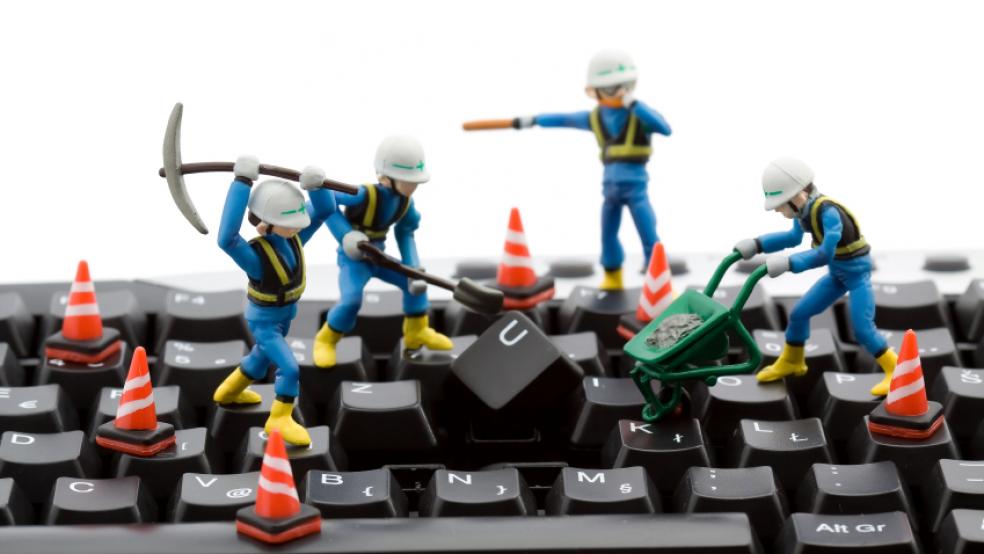On Wednesday morning, if your early-morning visit to Reddit, or Etsy, or Netflix (or Pornhub – hey, we don’t judge) seems a little slow, don’t bother resetting your router or attempt to navigate Comcast’s Kafkaesque customer support. The cause of the issue is probably just Internet Slowdown Day.
Hundreds of sites, ranging from giant news aggregator Reddit, social media hubs like FourSquare and Vine, web streaming giant Netflix and, yes, several large adult-content sites, are intentionally pretending to slow their connections and temporarily hide their content, in a move that is eerily similar to the large-scale Internet blackout that occurred during the SOPA deliberations in 2012. Other notable sites participating include Etsy, Fark, Tumblr, Upworthy and Vimeo.
Related: Opposition to FCC’s Net Neutrality Rule Grows
The participating sites will be showing a looped “loading” animation in order to simulate what the Internet will be like if the FCC’s proposed rules regarding “paid prioritization” are allowed to pass. The animation will also inform the site visitor as to how to contact the FCC to make a statement on the issue.
Critics say the FCC’s proposed rule would effectively end “net neutrality” — a first come, first served system that allows everyone the same access to broadband delivery of their content. The new rule allows broadband providers to prioritize traffic to and from sites that pay a premium over others, acting like a “fast lane” on a freeway.
Instead of the current proposed rules regarding broadband Internet, many advocates like the EFF (Electronic Frontier Foundation) propose that broadband providers be reclassified as telecom services, subject to common carrier standards including regulation, government oversight and price caps.
In addition to a tiered Internet’s impact on free speech, there is the concern that new online startups will be unable to pony up the ISP’s required high-speed fee. This, critics argue, would erode the uniquely equitable nature of the Internet, allowing already-established corporate media giants to crush smaller startups underfoot and either force them to shutter their doors or move their businesses offshore. Both scenarios would likely have a negative impact on job creation and the U.S. economy. Many of the big names on the list of participants were fledgling sites only a few years ago, and it is certainly possible that they would be defunct by now had tiered Internet been in place when they started.
Related: Protest for Net Neutrality Goes Wide as FCC Wavers
While the pending legislation has received plenty of coverage, like on comedian John Oliver’s Last Week Tonight – which called on its viewers to officially submit their personal comment to the FCC, ironically crashing the site in the process – many, including Fight for the Future, the grassroots organizer of Internet Slowdown Day, worry that the implications of the proposed ruling are not immediately obvious to the average person.
The potential impact of SOPA was only obvious once it could be seen in action, with Wikipedia blacking out its articles and Reddit hiding its content; the 35 advocacy organizations participating in Internet Slowdown Day hope that tomorrow has the same effect on the public perception of Net Neutrality.
“The ISPs have invested tens of millions of dollars in their effort to undermine Net Neutrality,” said Demand Progress executive director David Segal in a press release, “but we still have a chance of defeating them — because the overwhelming majority of Americans stand with the Open Internet. September 10th represents a chance for us to make that fact impossible to ignore.”
Top Reads From The Fiscal Times:





